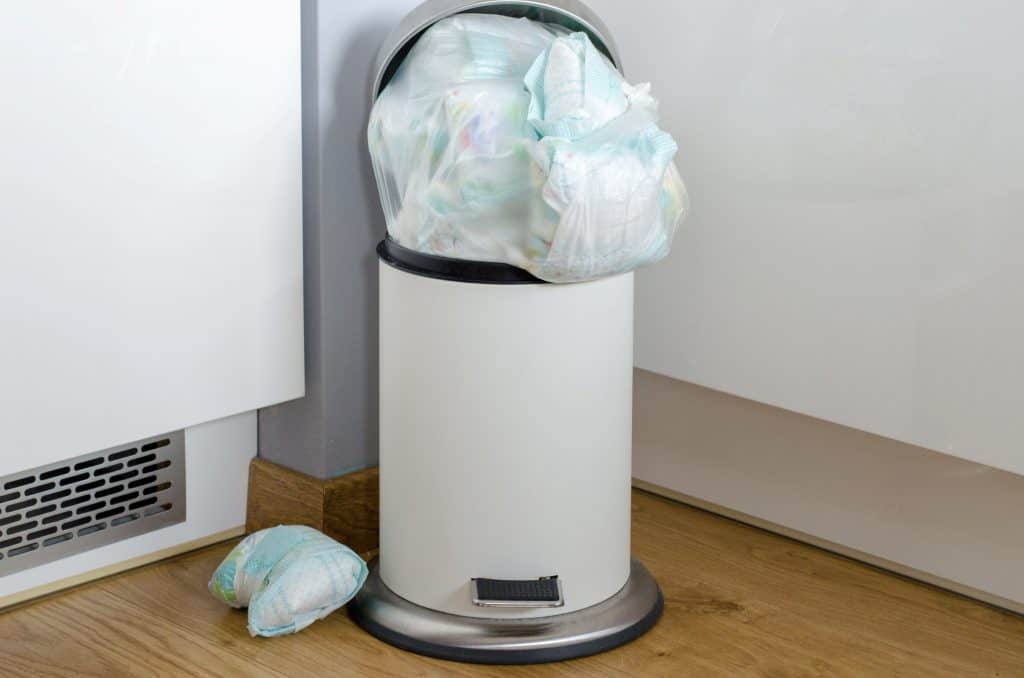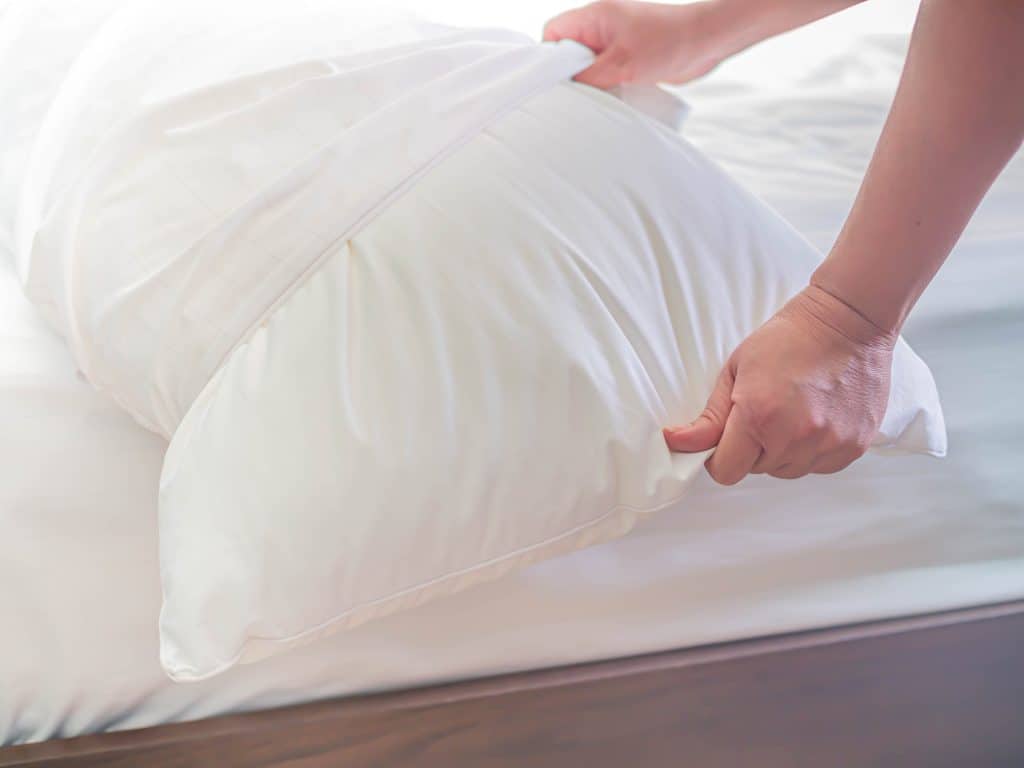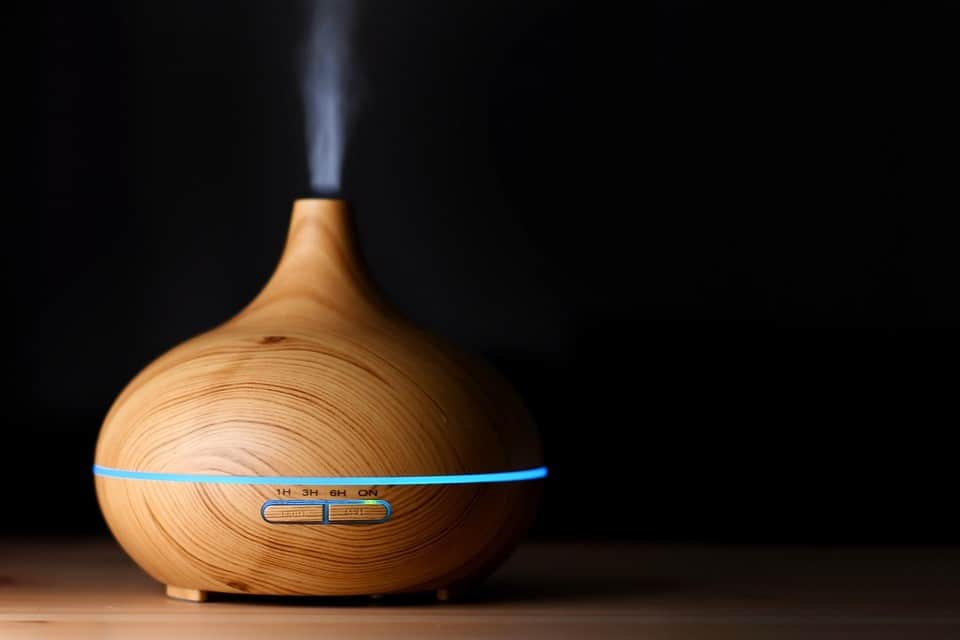A baby’s room needs to be kept smelling fresh and clean at all times. Lighting a candle and hoping for the best just won’t cut it – sometimes, this even makes it worse! Improving their room’s air quality requires genuine commitment, but fresh, clean air is always worth the effort.
Be responsible with how you handle your baby’s trash. Don’t let a room stay stuffy – air it out at least twice a day. Change your baby’s bedding often to avoid waste accumulation.
All of these will go a long way to not only improving the room’s smell but also its air quality. Once that’s settled, you can make use of other products such as scent neutralizers, air purifiers, and even oil diffusers to improve things further.
What keeps a baby’s room smelling fresh and nice isn’t any singular product, but proper cleaning routines and efficient waste disposal practices. Hone these fundamentals first.
How to Keep Baby’s Room Smelling Fresh and Nice
Be Responsible With Your Trash
One of the biggest sources of foul odors in a room is accumulated trash. Soiled diapers are notorious for dragging down a room’s air quality. Other nasty culprits such as food waste also need to be dealt with proactively to avoid rancid smells.
Diaper Disposal

Used diapers smell horrible, but you can reduce their olfactory impact significantly by just… dumping their contents into the toilet bowl.
Most parents skip this step, but it’s crucial not only for less smelly storage but for better space efficiency. Less poop means fewer bacteria, fewer smells, and less space consumed per diaper.
We’d recommend storing dirty diapers in a plastic bin – preferably one with a thick lid. These containers are simple to disinfect, easy to wash, budget-friendly, and reusable to boot! Look for lids with foot pedals so you can open them even with your hands full.
Other people suggest using plastic bags for this purpose. In our experience, the awful smell tends to diffuse from the thin bag in a matter of days, if not hours. All it would take is one small tear to undo all your hard work keeping the air nice and fresh.
Designated diaper baggers also need plenty of tiny plastic bags. They might not seem too pricy now, but the expenses will add up over time. A reusable trash bin requires a lot less upkeep.
Instead, just use the plastic bag to line your trash can. This allows you to collect the trash without making contact with it directly while making all that waste much easier to transport.
Move the trash can out of your baby’s room before emptying it – doing this makes the odor less likely to seep out and contaminate its surroundings. Don’t bring the trash bin back until you’re 100% certain it’s been cleaned and disinfected.
Food Waste
Food waste is a big problem in the odor department. For babies, the worst types of food wastes are either liquids (i.e. breastmilk) or semi-solids (i.e. Oatmeal, crushed fruit jam).
Breastmilk is especially bad on this front, as spills blend well with most plain bedsheets. You might not even notice until the milk goes rancid, which can happen in as little as four hours.
Feeding bottles left out can cause similar problems, as the bottle nipple allows the spoiled odor to diffuse into your baby’s room with little resistance.
Semi-solid food products are a little different, with their stains being much easier to spot but much harder to scrub out. They’re still a nuisance to clean.
Food products also have a habit of attracting insects or pests. If they come from the outside, such specimens might be carrying dangerous bacteria, pathogens, or viruses.
Store away leftover food products as soon as you’re sure your baby is done eating. Be mindful of any potential stains in the room – spray any you spot with liquid detergent or other cleaning solutions. If you can’t be sure there’s been a spill, play it safe and spray it anyway.
Final Warnings
It might seem like a good idea to store all of your baby’s trash in one bin, but you might encounter some uniquely-unpleasant odors from this.
Poopy diapers mixed with rancid milk, for starters – disgusting!
Always sort your trash according to its waste type. It’ll be easier on your nose!
Air Your Baby’s Room Out A Couple of Times Per Day

Stuffy air isn’t just unpleasant – in extreme cases, it poses a health risk! Moisture, bacteria, and respiratory irritants can concentrate in the stuffy air. Your baby’s immune system is especially vulnerable to these types of infections early in their young lives.
Opening your windows can make a world of difference in a room’s air quality. Try to do this at least twice a day for around thirty minutes each.
It might seem good to keep those windows open for most of the day to ensure constant ventilation, but your little one might not be able to handle it. Babies have poor thermoregulation, and a gentle breeze could rapidly rob them of precious body heat without you even noticing.
Open windows are also invitations for bacteria, pollen, or even fungal spores to slip into your child’s room and make life much worse for your family.
You want to open the window to ensure good ventilation, but don’t keep it open for longer than necessary – especially if you plan on leaving your infant inside the room!
Rotate Their Bedsheets and Pillow Cases More Often

Food waste and spillage may seem to be the biggest concern for your infant’s bedding, but there are other discrete concerns you must keep in mind.
Your baby’s bed sheets, blankets, and pillowcases need to be washed at least twice a week. We’d recommend bumping it up to thrice a week for the sake of their health.
A baby’s bedding accumulates dead skin particles, sweat, saliva, and hair. These can serve as the breeding ground for dangerous bacteria. Even if that horrible outcome doesn’t come to pass, letting all of that detritus stay on their bed is just plain unsanitary.
We’d recommend splurging on an extra set of pillowcases and beddings – if only to avoid having to do too much laundry in a week.
Use Scent Neutralizers, Air Purifiers, and Oil Diffusers
Now that you’ve taken those sanitary precautions, you can move on to other options to further enhance your baby’s room’s air quality and smell. We’ll go over three of them down below.
Scent Neutralizers
Many air freshener products attempt to mask problematic odors by overpowering them with something even more pungent. There’s always a risk that these scents would simply intermingle, leading to the creation of even worse odors.
Scent neutralizers are preferred in these cases, eliminating foul odors efficiently. You could even make your own odor-killing spray at home with simple household components like white vinegar, hydrogen peroxide, and lemon juice.
Make sure your infant stays out of the room while you apply scent neutralizers. Direct inhalation could damage their sensitive respiratory systems. Wait for the spray to settle for at least half an hour before bringing your infant back into the room.
Air Purifiers
Most homes are chock full of microscopic airborne pollutants. Air purifiers are a great investment to deal with this issue, filtering them out with ease and efficiency.
Among the common air purifier types, we’d recommend filter-based ones. These don’t produce unwanted byproducts, making them both simpler and safer to maintain.
Don’t be swayed by excessive advertising or fancy features – focus on the functional. All you need is something to clear the air in your baby’s room.
Oil Diffusers

Oil diffusers essentially you to experience essential oil aromatherapy, which comes with more perks than one might expect. Essential oils relieve stress, improve sleep cycles, and even kill different types of bacteria, viruses, and even fungi.
They’re nice, cleansing tools well worth keeping inside your baby’s room. These do come with a few caveats, though.
Not every essential oil is okay for your baby to use. Eucalyptus, for instance, can cause drowsiness and breathing difficulties for infants.
Even if an essential oil is “cleared” for general use for infants, you need to keep dosage in mind. Babies have a much lower tolerance of essential oils than adults do. Warning signs of essential oil overexposure can be hard to spot for most parents.
Play it safer here by diluting your essential oil of choice with water.
Before you do any of that, be sure to consult your pediatrician. A second opinion is critical since even modest risks are unacceptable for your child.
Some babies might even be allergic to certain essential oil blends – even ones deemed acceptable for use on infants. Your pediatrician would know best here, so talk to them before making any sort of purchase.
Your baby might even have allergies to certain essential oil blends, so it’s crucial you have a chat with your pediatrician before making any sort of purchase.
Final Thoughts
What makes a baby’s room smell nice and fresh isn’t an overabundance of air fresheners, but responsible maintenance and proper waste disposal. Make sure the room has good ventilation. A clean room is a fresh room – not just a fresh-scented room.
A fresh room is what your baby deserves. It will take time and effort, but it’s worth powering through to give your infant what they deserve.